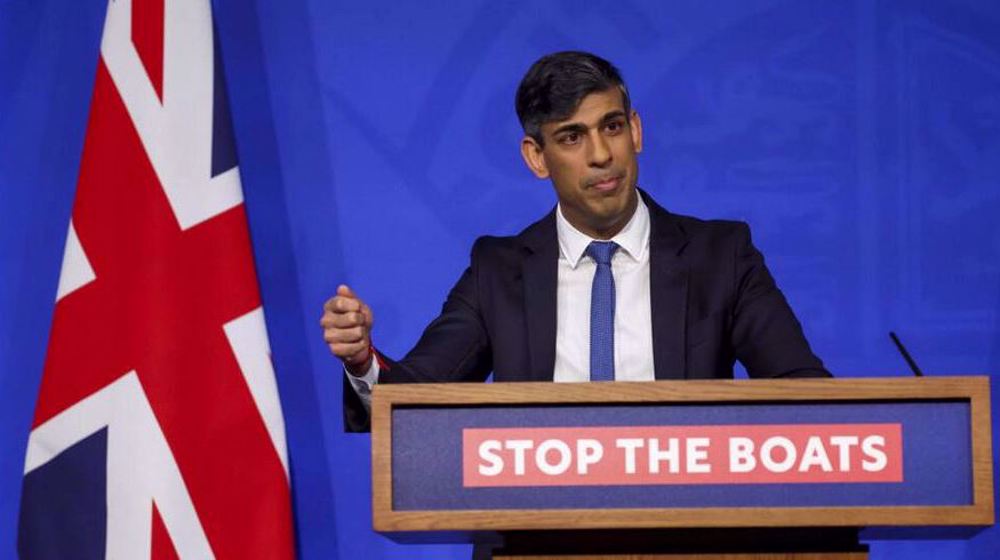Kenya sets fire to largest ever ivory stockpile to protest poaching
The Kenyan government has torched the largest ever stockpile of confiscated ivory in the Nairobi National Park to protest the growing threat of poaching that is pushing the shrinking number of elephants to extinction.
On Saturday, the Kenyan President Uhuru Kenyatta thrust a burning torch onto the 105-ton ivory piles of some 8,000 elephants, sending a message that the illegal trade in the animal parts must be stopped.
“Kenya is making a statement that for us ivory is worthless unless it is on our elephants. The height of the pile of ivory before us marks the strength of our resolve,” said Kenyatta before lighting the first of the pyres.
“No-one, and I repeat no-one, has any business in trading in ivory, for this trade means death of our elephants and death of our natural heritage. We will not be the Africans who stood by as we lost our elephants,” he added.

The pyres contained some 16,000 tusks and pieces of ivory, as well as an additional 1.35 tons of rhino horns of some 340 endangered animals.
It is estimated that, on the black market, the current worth of such huge quantity of ivory would be more than $100 million, and for the rhinos’ horns could be as much as $80 million. Smugglers sell each kilogram of tusk for around $1,000 and the same amount of rhino horn for as much as $60,000.
“When Kenya burns $100 million worth of ivory, they’ll say, ‘What the hell was that about?’ It will help open their eyes to what is actually happening,” said Kenyan renowned paleoanthropologist and conservationist, Richard Leakey, who is also the country’s top wildlife service official, adding that it was “shameful” to keep stocks in case of possible future sale.
He also called on all African nations to follow Kenya in helping to destroy confiscated ivory and rhino horn.

A notable guest in the Saturday’s bonfire was Gabon’s President Ali Bongo, who also lambasted the illegal trade that is driving these large and majestic mammals to extinction.
“Unless we take action now, we risk losing this magnificent animal," said Bongo at the ceremony, telling poachers that he was “going to put you out of business, so the best thing you can do is to go into retirement now.”
The tusks are expected to burn for days.

In 1970s, Africa was home to some 1.2 million elephants, but now it has only 400,000 to 450,000. According to research conducted by George Wittemyer of Colorado State University, poachers killed over 100,000 elephants between 2010 and 2012 alone.
Over 30,000 elephants are believed to get killed each year for their tusks, which are smuggled into other countries, particularly China, for making ornaments and decoration.

The situation for rhinos is more alarming as there are fewer than 30,000 left across Africa and one species, the Northern White Rhino, is on the brink of extinction.
Kenya alone was home to 20,000 rhinos in the 1970s. The figure, however, fell dramatically to 400 in the 1990s. The Eastern African country has now almost 650 rhinos.

This is not the first time Kenya has set fire on a stockpile of elephant tusks. In March 2015, 15 tons of ivory were burned so that “future generations of Kenyans, Africans and the entire world" can "experience the majesty and beauty of these magnificent beasts," according to Kenyatta.
UK suspends legal assessments of Israeli violations in Gaza
Students protest at US universities to urge end in financial ties to Israel
Biden signs war aid bill supplying Israel, Ukraine with more weapons
VIDEO | France, West warn Israel against escalation with Iran
Iran refutes Kuwait’s assertion of exclusive rights to Arash gas field
VIDEO | Press TV's news headlines
Region to benefit from Iran-Sri Lanka cooperation: Raeisi
Iran dismisses US allegation of ‘malicious cyber activity’












 This makes it easy to access the Press TV website
This makes it easy to access the Press TV website